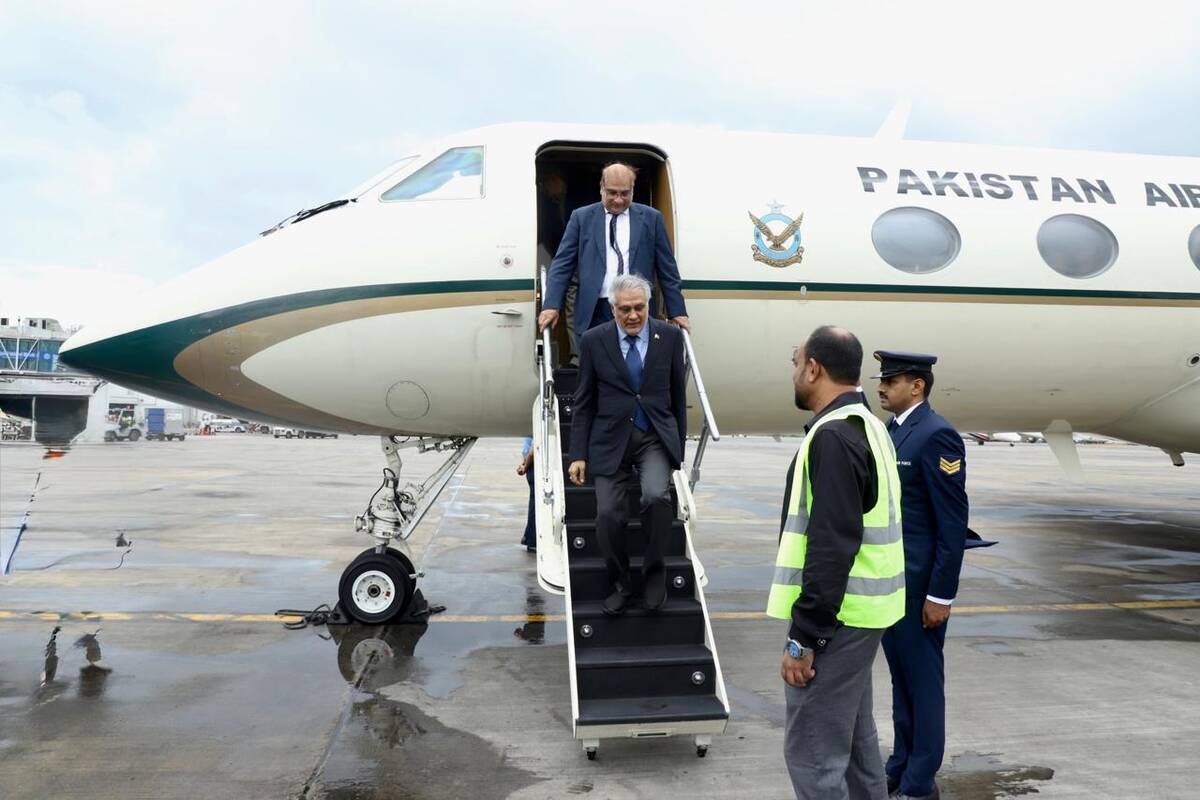KARACHI: The counter-terrorism department (CTD) in Pakistan‚Äôs southern Sindh province on Saturday accused India‚Äôs external intelligence agency, the Research and Analysis Wing (RAW), of orchestrating the killing of a ‚Äúprominent welfare worker‚ÄĚ in May, saying they had arrested six suspects for their links with Indian operatives.
Abdul Rehman alias Razaullah Nizamani, 50, who was known for his welfare and philanthropic work, was shot dead in Sindh’s Matli town on May 18. Following the incident, Indian media claimed the deceased was a key member of Lashkar-e-Taiba (LeT), a proscribed group that had been active in the disputed Kashmir region.
Speaking at a press conference in Karachi, Azad Khan, the additional inspector general of CTD in Sindh, said their investigation revealed that Rehman‚Äôs ‚Äúextraterritorial killing‚ÄĚ had been orchestrated by a RAW handler, Sanjay Sanjeev
Kumar, also known as ‚ÄėFauji,‚Äô from a Gulf country. There was no immediate comment from the Indian side.
‚ÄúThis is a case of extraterritorial killing,‚ÄĚ Khan said, adding that Kumar orchestrated the killing through a man, named Salman, who hailed from the Sheikhupura district in Pakistan‚Äôs Punjab province.
‚ÄúHe sent Salman, after paying him a huge amount, and the other group, four other people. And they went to Hyderabad, stayed there for five, six days and they carried out this killing.‚ÄĚ
Pakistan has previously accused India’s intelligence agency of being involved in killings inside Pakistan, saying it had credible evidence linking two Indian agents to the deaths of two Pakistanis last year.
RAW spent a ‚Äúsignificant‚ÄĚ amount of money on the operation and sent funds through banks and multiple channels to Salman and his associates, according to Pakistani CTD officials, who presented record of purported transactions and travel history of suspects.
A case relating to terrorism financing has also been registered against the suspects and their handler after the discovery of these financial transactions, they added.
Khan said the killing was part of India‚Äôs ‚Äúcowardly retaliation‚ÄĚ after a four-day military standoff with Pakistan in May, in which Islamabad claimed victory by saying that its air force had downed six Indian fighter jets, including the French-made Rafales. India has acknowledged the losses but did not specify the number.
‚ÄúIndian media expressed immense satisfaction over this targeted killing and began spreading propaganda,‚ÄĚ Khan said.
The suspect, Salman, arrived in Karachi on May 12 and checked into a hotel in Hyderabad with four accomplices, Umair Asghar, Sajjad, Obaid and Shakeel, according to investigators. The group surveyed the target in Matli for five days before the attack. After the killing, Salman flew out from the Karachi airport to a Gulf country and later fled to Nepal.
During this time, Khan said, Kumar remained in constant touch with the team.
The CTD, working together with federal intelligence agencies, arrested four suspects in Karachi on July 8. Two other suspects, Arsalan and Talha Umair, were arrested on Aug. 17 and Aug. 23, respectively, according to the official.
Authorities recovered two pistols used in the killing, a motorcycle and mobile phones from arrested suspects.
‚ÄúWhen we arrested the suspects, it was done based on technical grounds,‚ÄĚ Khan said, adding that CCTV footage, eyewitness account and recovered weapons linked them to the killing.
Indian media outlets have reported nearly 20 such killings in Pakistan, including in major cities like Karachi and Rawalpindi, in recent years, claiming the deceased had been linked with militant groups operating in Kashmir.
Kashmir has been divided between Pakistan and India since their independence from British rule in 1947. Both sides claim the territory in full but rule it in part and have fought multiple wars over it.
New Delhi has long accused Pakistan of fanning an insurgency on its side of Kashmir. Islamabad denies this and maintains that it only offers moral, political and diplomatic support to the Kashmiris.
‚ÄúThis is the first time the actual hit team was arrested,‚ÄĚ AIG Khan said, referring to previous cases in which the arrested suspects had only surveyed targets for the hitmen.
A Sindhi separatist group also facilitated the attack, while the prime suspect, Salman, remains at large after fleeing to Nepal, according to Khan.
‚ÄúIt is essential that he be arrested,‚ÄĚ Khan said, urging Pakistani federal authorities to raise the case at international forums dealing with terrorism financing.
‚ÄúOur role is limited to investigation and collecting evidence. This case now needs to be taken forward by the Government of Pakistan.‚ÄĚ
Khan described the killing as part of a pattern of operations by Indian intelligence agencies abroad.
‚ÄúSuch acts fall under state-sponsored terrorism,‚ÄĚ he said. ‚ÄúOur investigation has provided ample evidence of RAW‚Äôs involvement.‚ÄĚ
In 2023, the United States and Canada accused Indian agents of links to assassination plots on their soil. India dismissed the allegation of its involvement in the killing in Canada as ‚Äúabsurd.‚ÄĚ
In the case involving the US, India‚Äôs foreign ministry said it had set up a high-level committee to investigate the accusations, adding that the alleged link to an Indian official was ‚Äúa matter of concern‚ÄĚ and ‚Äúagainst government policy.‚ÄĚ


















